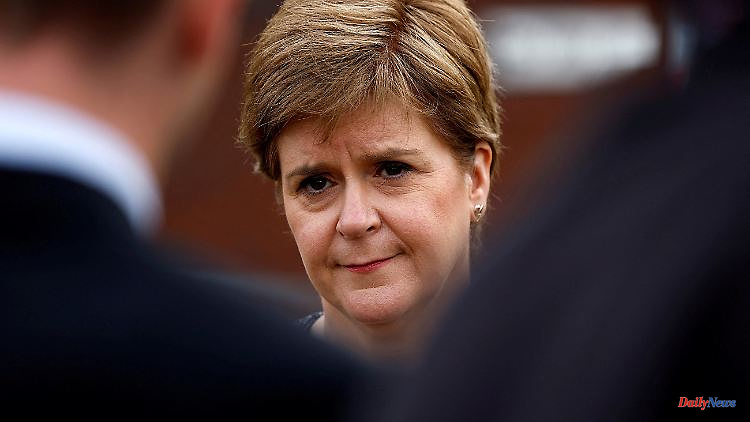In January, the Scottish regional government passed a liberal transgender law, which was blocked by London. In the power struggle that followed, Prime Minister Nicola Sturgeon apparently lost out - and now wants to resign from office.
Scottish Prime Minister Nicola Sturgeon is reportedly about to leave office. This was reported by the BBC and Sky News, citing government sources. The background is apparently the case of a transgender woman who was initially held in Scotland's only all-women's prison for raping two women before her gender reassignment. This had brought Sturgeon wide public criticism.
In Scotland, transgender issues are currently a major focus. The Scottish regional government under Sturgeon passed legislation last month to make it easier for people to determine their own gender. However, the British government in London blocked the law, arguing that it could have negative repercussions on national equality laws.
Sturgeon plans to announce her resignation at a hastily called 12 noon press conference in Edinburgh, according to the BBC. A source said to be close to the politician said Sturgeon was "fed up". When exactly she wants to leave office is unclear. However, it is likely that she will wait for the election of a successor.
The leader of the Scottish National Party (SNP) was elected Scotland's First Minister in 2014 - making her the longest-serving head of government in the country, which is part of the United Kingdom. She is best known as a proponent of Scotland's independence movement.
However, severe setbacks have recently had to be accepted on this issue as well. In November, Britain's Supreme Court rejected a Scottish request for a referendum on secession from the United Kingdom. Sturgeon wanted to hold another independence referendum in October 2023.
The Scots had already voted in 2014 to leave the kingdom that had been shared with England and Wales for three centuries. At that time, the opponents of independence prevailed with 55 to 45 percent of the votes.
Sturgeon justifies the desire for a new vote with the outcome of the Brexit referendum in 2016, in which a clear majority of Scots voted against the UK leaving the EU, which has since taken place.












